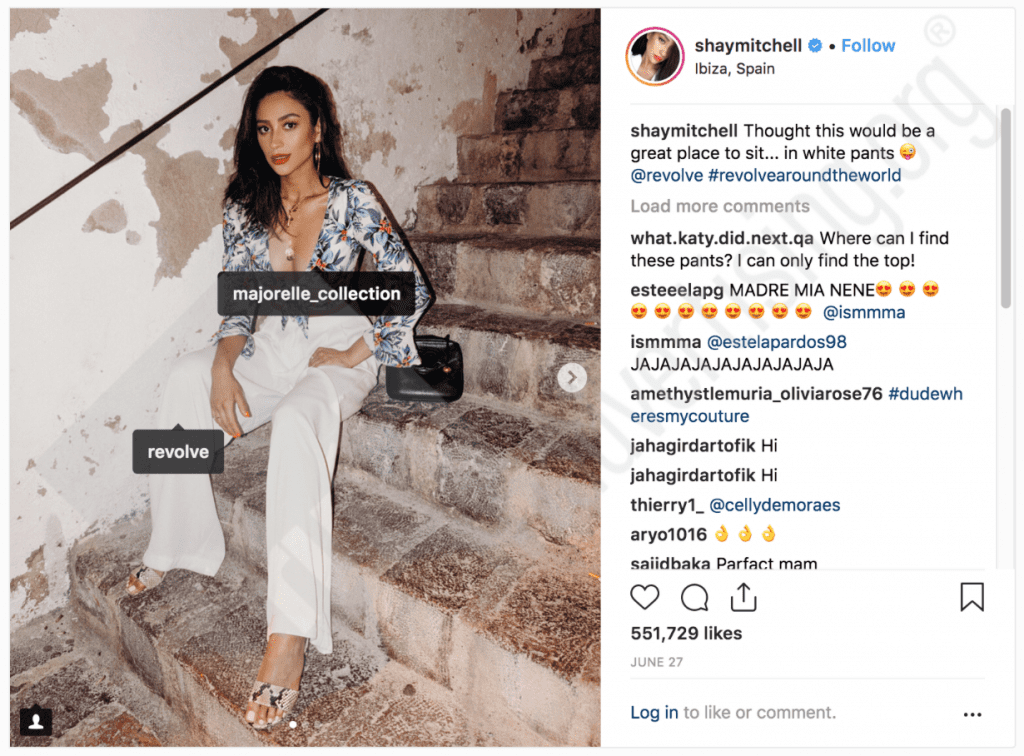That is an ad, isn’t it? That is the key question in a new complaint that an advertising non-profit filed with the Federal Trade Commission (“FTC”), putting the U.S. government entity on notice of more than 1,400 undisclosed sponsored social media posts by big-name celebrities and influencers on the heels of the FTC’s March 2017 letters alerting famous figures (and brands) to the legal requirement that they clearly disclose whether a social media post has come about as a result of a material connection, such as payment, that consumers likely would not expect.
According to a formal complaint that Truth in Advertising, Inc. (“TINA”) filed with the FTC on Monday, two years after the FTC “notified [many] social media influencers and marketers about the need to clearly and conspicuously disclose influencers’ relationships with brands when promoting products and services on social media websites, such as Instagram … all but one of them [Lindsay Lohan] have continued to mislead their fan base.”
TINA points to Instagram posts from Naomi Campbell, reality stars Scott Disick and Dorothy Wang, Ciara, and actresses Sofia Vergara, Vanessa Hudgens, Ashley Benson, Lucy Hale, and Shay Mitchell, among others, that lack proper disclosures, such as #ad.
For actress Shay Mitchell, for instance, Connecticut-based TINA points to allegedly undisclosed promotions for Louis Vuitton, notorious FTC guideline-ignoring retailer Revolve (and its brands Majorelle Collection and Tularose), the Ritz Carlton, and L’Space Swim, among others. Scott Disick failed to disclose connections with private jet companies Jet Lux and Wheels Up, Polaroid, and Stadium Goods, writes TINA. The group also noted instances when supermodel Naomi Campbell “thanked” brands, such as Calvin Klein and Versace, for dressing her, in lieu of including clearer disclosures.
TINA asserts that no small number of Instagram posts from the famous figures it names “fail to meet the FTC’s clear and conspicuous standard for disclosing material connections to the brands promoted – with issues ranging from a complete lack of disclosure to using inconspicuous or unclear disclosures such as placing #ad or #sponsored ‘below the fold’ (i.e., not visible unless a user clicks on “more” to expand the caption box) and/or relying on Instagram’s built-in disclosure tool (which is separated from both the image and the caption).”
What is clear, according to TINA, “is that these social media influencers do not take the FTC’s regulatory guidance seriously and continue to deceptively market goods and services to their fans.”
“It is time that the FTC” – which is tasked with promoting consumer protection and eliminating and preventing of anticompetitive business practices – “takes strict enforcement action against these repeat offenders,” the organization states, urging it “to expand its investigation into the marketing tactics used by these social media influencers and put an end to this ongoing and pervasive consumer deception.”
This is the fourth influencer marketing complaint TINA.org has filed with the FTC, having previously alerted the agency to deceptive social media posts by the Kardashian/Jenners, Warner Bros. and YouTube personality PewDiePie, and dozens of Ciroc influencers.
As for the FTC, Mamie Kresses, a senior attorney in the FTC’s division of advertising practices, said in a statement: “When particular posts and particular influencers are brought to our attention, we do take it seriously. We do look at it, and influencers should know that we take it seriously. Just because you haven’t seen legal action to date does not mean that the FTC is not or would not look at legal action against a particular influencer.”











